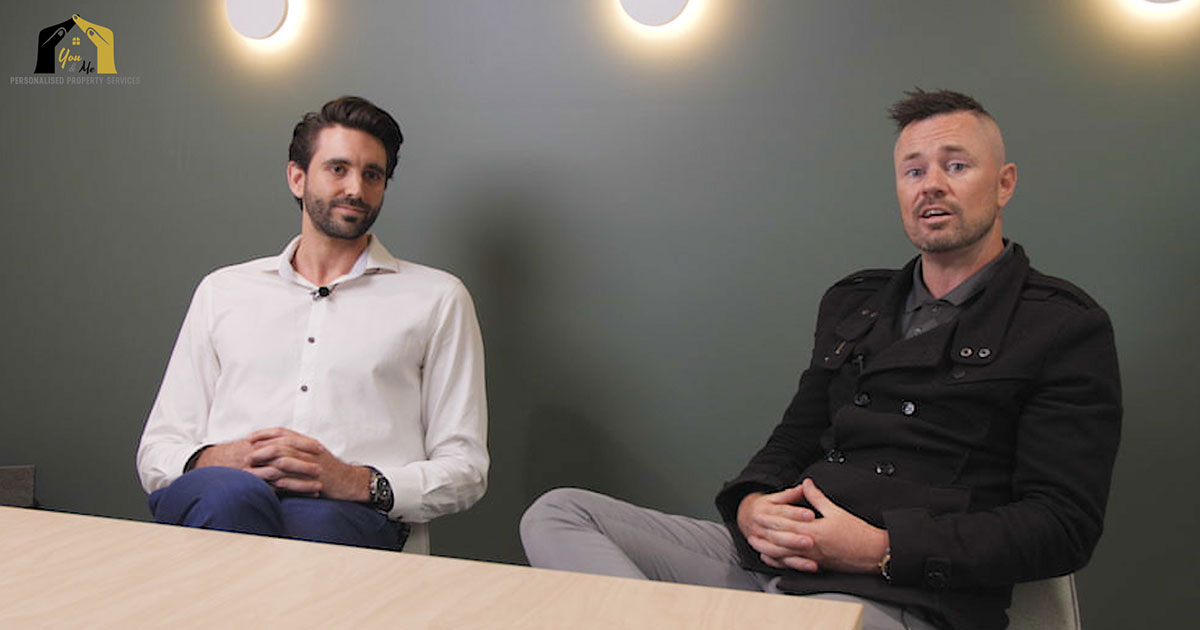
Author
With over 17 years of experience in the Perth property market, Heath Bassett brings a winning attitude to his role as Co-Founder of You&Me Personalised Property Services. A dedicated Defence Force veteran and passionate property investor, Heath thrives on challenges and is committed to securing the best outcomes for his clients. He's known for his honest approach, excellent communication skills, and unwavering dedication to providing a stress-free buying experience.
What is SMSF?
G’day everyone it’s Heath from You&Me Personalised Property Services. Here, with Matt from Capita Finance Solutions and we’re getting chatty with Matty.
Today we’re going to have a chat about self-managed super fund (SMSF), what it is, how you can use it to your advantage, and some of what fees are used within that SMSF.

Matt, thanks for joining us again.
We’ll go straight into it and we talk about self-managed super fund:
- What it is
- How easy is it to set up
- What sort of fees are involved
- What it actually means with buying property from your SMSF
Outsourcing your superannuation to super funds
So, the self-managed super fund is effectively when you become the fund manager for your super. So right now, everybody that doesn’t have an SMSF is outsourcing the management of their super fund to:
- Australian super
- GESB
- Hostplus
- And more superannuation funds
You can outsource your super to all these fund managers to look after your superannuation.
Manage your own super fund
The SMSF effectively takes the control back into your hands and allows you to then invest that money however you see fit.
So, obviously it can be shares, and in this case, because we’re here: property.
Use SMSF to buy property
That’s right. So this is where the You&Me Personalised Property Services buyer’s agent services come in and where we advise in terms of the loan to purchase property inside your self-managed super fund.
You utilise the cash that you have there to make your down payment very similar to how you would outside of your self-managed super fund. This is allowing you to access the effectively tax-free money that sitting in the SMSF that could be utilised to purchase an investment property.
How you can use SMSF to pay a property loan
And I guess why someone would want to do that? Going to a plain and simple example, you have $400,000 or $500,000 sitting in your SMSF. You pull that money or draw the loan on that SMSF.
Effectively you’re paying cash to the seller through the SMSF.
Now, in 20, 30, 40 years’ time, when you decide that that property has risen in value enough.
Selling your property at retirement
What happens is you selling that property that was worth $400,000 or $500,000 for $1,000,000 now and that money comes back in to your SMSF so self-managed super fund and instead of someone else managing it and potentially not giving that money back in, you’ve raised $600,000 for your SMSF for retirement.
Benefits of using SMSF to buy property
Yes, that’s pretty much it. And we got to get about the rent along the way. So all the rental payments going into your SMSF. Come retirement through the capital gain and all of the rent along the way. All of that then becomes tax-free. Once you are then able to access it out of your SMSF during your retirement.
Which is what age now? 65. So you can access that at 65. So, you buy something at 40 years old, you let it grow essentially and inflate over 25 years. You sell it back to someone and it goes into self-managed super fund.
SMSF to buy property as a business
Yes, and one of the main benefits as well as if you happen to be a self-employed applicant, I suppose, you can actually purchase the property that you’re operating your business on or move into a property and operate and then pay the SMSF which holds the property so your company will pay rent to their SMSF.
Which you own the SMSF. Correct. So you’re actually paying yourself rent because your SMSF owns that building?
That’s right.
SMSF fees
Lovely! No worries at all. Now, that sounds convoluted. Is it easy to set up and what are the some of the fees involved?
So a self-managed super fund has a lot of regulation. And like I mentioned before, you are a super fund manager effectively. So there’s a lot of compliance, a lot of obligations. It’s important to get the proper advice around how to set it up. And there is fees and costs involved, as you mentioned.
Different entities
There are few entities.
So you’re going to have:
- The managed fund itself
- You’ll have a corporate trust, which will be the corporate trustee
- The bare trust
And there’s a few other sorts of different entities that need to be to be set up in order to make this whole sort of system work. That would be best, I suppose, set up and explained by your accountant.
And these be part of a more holistic strategy. And the idea is that what you’re doing is working for you and that all the costs involved in setting it up are still going to allow it to be beneficial.
Personal cost
Yeah, cool. And is there any personal costs involved? So let’s say I want to buy a property. I’ve got $400,000 in my super. Is there any personal cost to me? Not my super fund to me in regard to setting that up all along the way.
Whether accountant fees can be paid out of your self-managed super fund is definitely a question for the accountant.
Who can set up SMSF for you?
Again, it’s all a little bit muddy waters for a lot of us. But who would they see to be able to set that up and to run the advice for that?
An accountant
Definitely an accountant. So you want to be seeing an accountant to get that set up, you can also be referred to a financial adviser.
Would potentially refer you out to an account to actually get it set up. So that would give you the advice to say this is what we think we’re going to be doing. If they’re licensed to give to set up a self -managed super fund, then they may be able to do that as well.
The set up side is typically an accountant, the advice side is typically a financial planner, and a lawyer would get involved potentially for the trusts.
Financial planner
A few different areas people to see but the financial planner should typically be your central point for that sort of advice.
Final word
Lovely no drama so guys, there you have it. There’s a bit of information on self-managed super fund. We are getting a lot of it come through these days since people are using their money, but their super fund money to purchase property and they don’t have to have their own money to do it.

Contact us
So if you want any information at all about property, about self-managed super fund, or if you want to talk to Matt about getting money yourself, come and see him. It’s Matt from Capital Finance.
If you would like to contact us, please get in touch and we’ll be happy to help you.
And until next time, as always, happy investing.

Property Buyer's Agent and Co-Founder at You&Me Personalised Property Services
